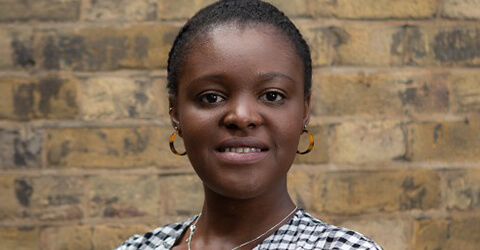Chantelle Bell is a British Entrepreneur and a Post Graduate in Bioscience Enterprise. Her startup, Syrona, has raised hundreds of thousands of dollars to date and is revolutionizing the Gynaecology sector. In 2018, Bell was named as one of Forbes ‘Top 50 Women In Tech’ for Europe. She was also named to The Financial Times list of the ‘Top 100 Minority Ethnic Leaders In Technology And Financial Times List,’ and the U.K.’s list of ‘Top 100 Black And Minority Ethnic Leaders In Technology.’
Chantell Bell is a British citizen, born in the United Kingdom, who first chanced upon her life purpose while studying Bioscience at Cambridge University. During her Post Graduate Degree, she met her co-founder, Anya Roy, and her journey in the women’s health sector began.
Bell and Roy soon became friends, and between their banter, they shared their negative gynaecology encounters. Her co-founder, Roy, went through her own shock ovarian cancer diagnosis in her early twenties. She said, “I very much believe that early detection saved my life.”
Spurred by this personal conversation after class and well-versed in women’s under-representation in clinical trials, the duo decided to tackle this issue and created tools to support women. This led to the birth of Syrona Women, a virtual gynae health clinic that provides specialized support to people with endometriosis, cancer detections and other chronic conditions in the women’s health space. “We’re looking to empower women, to create a paradigm where women are able to monitor their own health,” says Bell.
The main problem Syrona is trying to tackle is that of endometriosis. According to research, endometriosis is the second most common gynaecological disorder in the United Kingdom. However, it takes almost seven years to diagnose this disorder from the first time the patient starts experiencing symptoms. While some celebrities like Alexa Chung, Chrissy Teigen and Lena Dunham have openly shared their struggles with endometriosis on their social media handles, there has been no breakthrough in the field. Despite affecting the same number of people as diabetes, endometriosis receives significantly less funding (around $1 of research funding for every $200 invested in diabetes).
Syrona Women has changed the diagnosis procedure for people with endometriosis and gynaecological cancers and has raised awareness to educate women about their bodies. The startup invented their own personal testing kit that can be used to identify STDs, endometriosis and cervical cancers. “At present, many of the detection methods for these conditions are very invasive, expensive and infrequent,” says Bell. The company has changed this and made it a smoother process that is also cost-effective. Their device operates as a simple diagnostic test that reacts when in contact with a ‘naturally occurring and non-invasive sample.’
Users can subscribe to the Syrona Women kit, with a recommended use twice per year. It also provides users access to the company’s growing community, where users can ask questions, share experiences safely and access the online General Practitioners for clinical advice.
Further, Bell explains how to use the platform for women who haven’t tried it before; first, the user will have to create a profile to log in, and then the team at Syrona Women will recommend the best options for them and customize their test options to best suit their needs. Once the test results arrive from their Syrona testing kit, the user will take the sample and post it on the Syrona Women platform. The team then analyses and sends the results back with an explanation to answer any queries regarding the diagnosis.
“We built upon our early research during our time at Cambridge University by collaborating with other partner universities in the U.S. and the U.K.,” said Bell. “This helps with translating science from a research and clinical perspective to the patient. We have ongoing research studies and clinical trials to validate aspects of the app which we run in conjunction with our research partners.”
Motivated by the prior success of their platform, the company then decided to further their cause and decided to launch their new app, SORA, by Sirona Health in their quest to democratize gynaecological healthcare. This app is an innovative virtual health assistant that assists women. SORA provides free specialized support by professionals for Chronic Gynaecological Health Conditions such as PCOS and Endometriosis, both diagnosed or undiagnosed.
Bell says, “We’re combining years of research with technology and created a personal in-your-pocket healthcare assistant to help every step of the way with this debilitating condition. SORA allows Endometriosis patients to access all the information in one handy app, and also access a community of fellow patients to help them cope with the devastating impact this condition can have on their mental health.”
The startup has shown tremendous potential. Beyond commercial sales and the rising number of users, there’s also the potential for Syrona to partner with women’s health outreach groups in the country and, later stage, with Britain’s National Health Service (NHS) and hospitals worldwide. The Founder hopes that eventually, Syrona will be expanded to address other women’s health issues – like menopause.
In conclusion, Bell says, “We want to help all women understand their bodies more, that’s our main goal.” A goal that could help half the population lead a healthier life.







